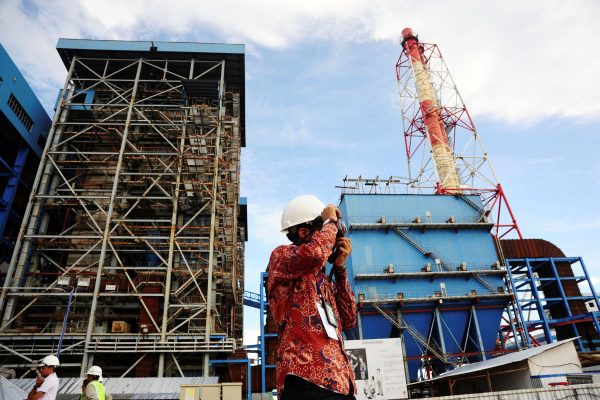China is already the largest emitter of greenhouse gases by far. Its reasonable ambitions for continued economic modernisation and urbanisation will require a massive shift in its structure of energy use if its commitments to carbon reduction are to be achieved. The past model of energy-intensive economic growth fed by fossil fuels would frustrate the world’s chances of keeping climate change at levels considered relatively safe. So whatever happens in China is central to the global effort to limit the extent of future climate change.
There have been big changes in Chinese economic activity and government strategy over the past few years that have brought coal consumption down significantly in 2015. History will probably record that China’s coal use peaked in 2013–14. This marks a crucial turning point in China’s role in both contributing to and responding to global climate change.
In other Asian countries, the harbingers of a revolution in energy use are less apparent. In some, coal consumption is on the rise, not in retreat, and the application of critical, carbon reducing and energy efficient technologies is lagging.
In this week’s lead, Kurnya Roesad and Frank Jotzo suggest that Indonesia — likely to be an increasingly important element in carbon emissions over the coming quarter century — is missing out on the global renewable energy revolution.
With a population of over 250 million people, pointing Indonesia’s energy path in the right direction as it develops is vital for the global greenhouse gas reduction effort. Indonesia has its own reasons to play a constructive role in decarbonising its economy and contribute to the global effort to reduce emissions — with 13,000 islands, it will be significantly affected by rising sea levels.
But reducing its carbon emissions by 29 per cent by 2030 and meeting its international commitments is easier said than done. Indonesia is still a poor country experiencing power shortages. Roesad and Jotzo explain that the ‘share of coal in total electricity production climbed from 36 per cent in 2007 to 41 per cent in 2015’ in Indonesia.
It is easier to decarbonise and reduce coal consumption — and even shut down new coal-fired power plants — in developed countries. For starters they can afford to, but they also have the institutions and capacity to make the transition to cleaner energy. China’s recent achievements in cutting coal consumption are impressive.
The need for energy, the abundant fossil fuels with which Indonesia is endowed and resource nationalism mean that the easiest path is to follow is the carbon-intensive one developed countries chose as they industrialised. If Indonesia does not start to nudge its energy path in a direction that is less reliant on coal-fuelled electricity, as Roesad and Jotzo argue, it will be at ‘risk of locking into a high carbon power sector’. The recent growth in coal-powered energy needs to be reduced.
The world’s third largest polluter, India, at 4.1 per cent of global emissions, faces a similar challenge.
The good news is that the challenge is global and that countries will not be alone in trying to make the transition to decarbonised growth. Progress in some countries in developing renewable energy technologies and reducing reliance on coal can assist others, through government-to-government cooperation and technological diffusion through the market.
The international community, Roesad and Jotzo point out, can help build capacity in Indonesian institutions to access global funds for investment in clean energy projects. Other countries can also provide the capital and experience to make it easier for these institutions to assess new projects. Members of the international community can work with Indonesia in thinking through the big ideas and strategies that will come to shape transformative energy policies with global impact.
Infrastructure investment is a domestic policy priority for raising the potential growth rate. International pressure and cooperation can help improve thermal power capacity and make new infrastructure greener.
The priority that attaches to regional cooperation on Asia’s energy transformation is clear.
The deep economic interconnections within the Asian economy are central to its global industrial strength and international competitiveness. And there is huge potential for energy cooperation to contribute to the industrial and technological transformation that the region now seeks to make its increasing energy use consistent with its environmental ambitions. These are matters, of course, in which energy suppliers like Australia have vital interest too and can play a major role in the regional energy transformation.
The challenge of Asia’s energy transformation presents a timely opportunity to open a constructive, high-level dialogue among Asia’s major energy users and suppliers — China, Japan, India, Indonesia, Australia and other key players in the region — about these and other regional priorities. Such dialogue would have substantial value, can be anchored in existing arrangements, bring a new tone into regional dealings and is likely to be welcomed all round.
The EAF Editorial Group is comprised of Peter Drysdale, Shiro Armstrong, Ben Ascione, Ryan Manuel, Amy King and Jillian Mowbray-Tsutsumi and is located in the Crawford School of Public Policy in the ANU College of Asia and the Pacific.


Indonesia has 18,108 islands, not 13,000. See Cribb and Ford (eds), Indonesia beyond the Water’s Edge, page 1.